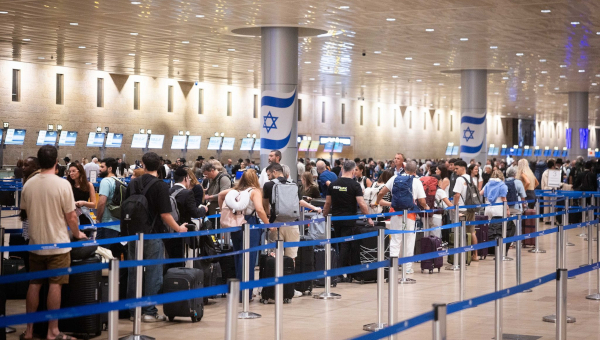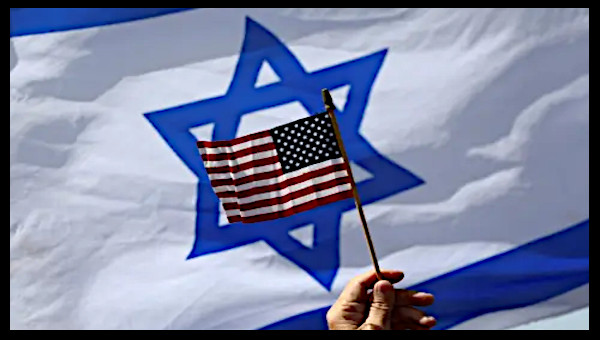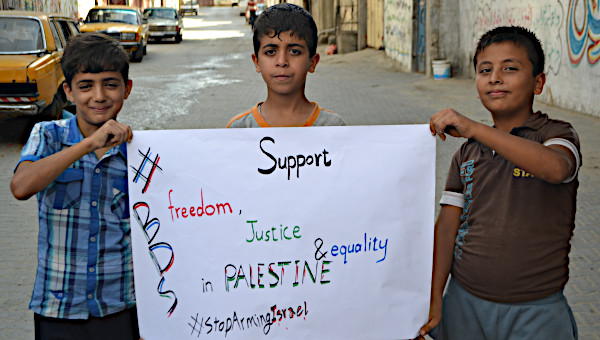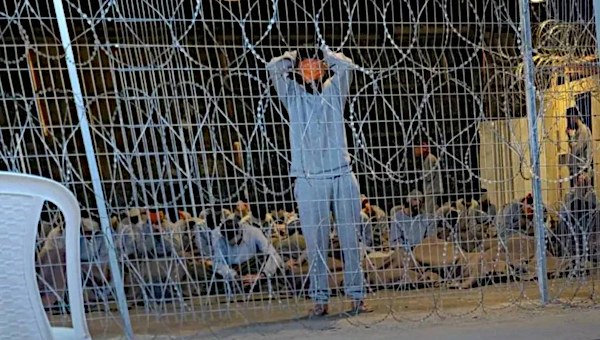Open Letter to Canadian Government: Support the ICC’s Work
The following is an open letter that I had the pleasure and honour of drafting alongside Canadian justice and accountability leaders Alex Neve, Heidi Mathews, Ardi Imseis, Kjell Anderson, Leilani Farha, and Michael Lynk. As can be seen below, it has been endorsed by a remarkable number of Canadian civil society leaders, former diplomats and parliamentarians, and others. Our message is clear: Canada must end its dithering and support the ICC’s work in Israel and Palestine. As we write: “To assert that there is something objectionable about holding Israeli officials to the same standards of international criminal justice as Hamas officials is to promote a double standard and to suggest that the rights of Palestinians matter less than those of Israelis. That is a racist, dehumanizing and discriminatory approach to international justice which Canada cannot countenance in any way.” I hope the letter is of interest to readers, in Canada and beyond. — Mark Kersten
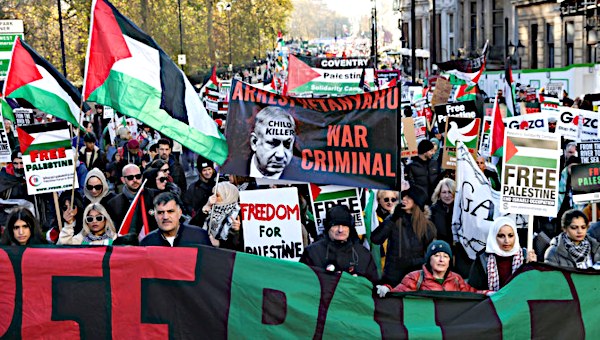
Dear Prime Minister,
We write this Open Letter to you as Canadian law professors, lawyers, legal scholars, academics, civil society, faith and labour movement leaders, and former diplomats and parliamentarians representing an extensive breadth of experience relevant to the imperative of upholding the rule of law, international human rights and justice, including through the International Criminal Court (ICC). We write in particular to urge your government to issue a public statement unequivocally affirming the prosecutorial and judicial independence of the Court as the investigations and proceedings advance in the situation in Palestine. In line with its unambiguous obligations of cooperation as a member-state of the ICC, this should include a clear statement that any arrest warrants issued by the Court against leaders of the Israeli government and senior Hamas officials will be enforced should any suspects arrive on Canadian territory.
Canada has a demonstrated reputation and record as a leader with respect to international criminal justice and the role of the ICC in upholding universal human rights and preventing mass atrocities. The Canadian government played a central role in the establishment of the ICC and made it clear that the Court would be focused on the accountability of individuals for their decisions and actions, regardless of their governmental or organizational affiliation. The first President of the ICC was a former Legal Adviser to Canada’s Minister of Foreign Affairs. The fourth President, who served from 2018 to 2021, is also a Canadian. A Canadian is in fact currently serving as a judge at the Court. From 2013-2021, the ICC Deputy Prosecutor was a Canadian.
Given that reputation and record, a strong statement of support from Canada will have a notable positive impact internationally. The absence of such a statement will, conversely, have a detrimental impact and undermine key principles of international justice that Canada has long championed. We note as well the March 18, 2024 House of Commons motion calling on your government to support the work of the ICC, a motion almost all members of your government, including you personally, supported.
Strong support is vital at this time given that the Prosecutor, ICC staff and the ICC as an institution are facing considerable political pressure, unfounded and inflammatory criticism, attacks on the Court’s independence, and even threats of personal sanctions against court judges and officials, all in relation to this case. This is clearly no time for champions of international justice to waver or to be ambiguous. That is why Canada’s position must be one of resolute and meaningful support.
The controversy intensified following the announcement on May 20th by the ICC’s Prosecutor, Karim Khan, that he has applied to the Court for five arrest warrants. Two of the warrants are against senior Israeli leaders, Prime Minister Benjamin Netanyahu and Minister of Defence Yoav Gallant. Three of the warrants are against senior Hamas leaders, the Head of Hamas, Yahya Sinwar, The Commander-in-Chief of Hamas’ military wing, Mohammed Diab Ibrahim Al-Masri, and the Head of Hamas’ Political Bureau, Ismail Haniyeh.1
Given widespread expert opinion that both Israel’s and Hamas’ actions, in Gaza and Israel, have constituted war crimes and crimes against humanity, applications for arrest warrants were expected and anticipated for weeks.2
While many of Canada’s allies, including Ireland, France, Norway, Spain, and Germany, have expressed clear support for the Court in this matter, others reacted with sharp rebukes and threats, in particular the Israeli and US governments. In that regard, we welcome statements made last week by you, Deputy Prime Minister Freeland and Minister of Foreign Affairs Joly, reiterating that your government respects the ICC.
We are, however, deeply concerned by accompanying comments that undermine this sense of respect, whereby each of you has criticized the Court’s Prosecutor for requesting arrest warrants against both Israeli and Hamas officials because the two should not be seen as “equivalent.” Those comments leave the impression that your government is opposed to the Prosecutor’s decision to press charges against Prime Minister Netanyahu and Minister Gallant because they should not be held to account in the same way or to the same standards that Hamas officials should. The implication of this for victims and survivors is that some are deserving of justice while others are not.
Prime Minister, we urge you to reiterate Canada’s unconditional support for the ICC as an independent judicial institution, and for the exercise by the Office of the Prosecutor of prosecutorial discretion without discrimination. All victims and survivors are equally deserving of accountability, irrespective of where they reside, their religious faith, their ethnic or racial heritage, or their nationality or citizenship.
The ICC Prosecutor’s office does not and cannot engage in a weighing of equivalency; it does not judge whether certain alleged perpetrators of international crimes are better or worse than others depending on their political standing. Investigators and prosecutors at the Court simply and rightly follow the evidence before them and apply the law impartially to ascertain whether specific individuals bear criminal responsibility for international crimes.
The Prosecutor has concluded that the evidence establishes reasonable grounds to believe these two Israeli and three Hamas officials have committed crimes under international law, in particular extensive war crimes and crimes against humanity. The factual and legal nature of the crimes of which they stand accused varies widely. If they are eventually tried, they will face separate legal proceedings where they will enjoy the presumption of innocence. There is but one essential element that they do have in common. After extensive independent and impartial investigations, their actions and decisions have been held up by the ICC Prosecutor to universally binding international legal standards and have been found wanting. That even-handed application of the law should be welcomed and supported, without hesitation, as that is the very essence of international justice.
From the outset, the international human rights system, to which international justice is integrally tied, has been premised on the foundational promise of universality. Adopted in 1948, the Universal Declaration of Human Rights, in article one, makes that abundantly clear: All human beings are born free and equal in dignity and rights. That is what is at stake here. The rights – and lives – of Palestinians and of Israelis are equal, and their equality must be respected and upheld under the law. In that same spirit, international justice promises that all perpetrators of human rights violations and abuses, particularly those of the gravest nature constituting crimes under international law, shall be judged and held accountable equally.
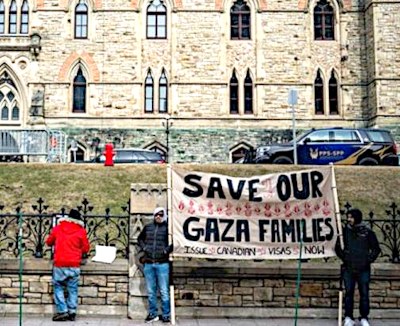
To assert that there is something objectionable about holding Israeli officials to the same standards of international criminal justice as Hamas officials is to promote a double standard and to suggest that the rights of Palestinians matter less than those of Israelis. That is a racist, dehumanizing and discriminatory approach to international justice which Canada cannot countenance in any way.
The principles of equal treatment and access to justice in the field of international criminal justice do not, by any measure, amount to an equivalence of the nature you have decried. No country, no armed group, no corporation and no individual can be allowed to stand above or apart from the law. Nothing undermines justice more – at a national or international level – than double standards and exceptionalism. This commitment must be at the core of Canada’s ICC position and foreign policy.
We urge you, therefore, to issue a clear statement of support for the work of the ICC with respect to the situation in Palestine, which includes the following key elements:
- Canada fully respects the ICC, unequivocally embraces the Court’s independence, and unconditionally supports the work of the Court in this matter, including investigations of alleged crimes committed by both Israeli and Hamas officials.
- Canada will fully cooperate with the ICC in the Palestine situation, in keeping with Canada’s obligations under the Rome Statute,3 including providing any assistance requested with respect to evidence and witnesses, and executing arrest warrants if any individuals sought by the Court come within Canadian jurisdiction.
- Canada condemns any threats made against ICC personnel in connection with this situation, or any situations or cases pursued by the Court, and specifically calls on all actors, both at home and abroad, to refrain from imposing or threatening to impose any sanctions or taking any other retaliatory measures against judges and court staff.
- Canada resolutely agrees that universality is a cardinal principle of international justice. No one should be excluded from accountability for crimes under international law, regardless of their nationality, political status, power and influence, or whether they serve in a democratic, autocratic or dictatorial government, or are part of an armed group.
- Canada calls on all governments, particularly those of ICC member states, to make similar expressions of unwavering support for and commitment to cooperate fully with the ICC, in relation to this and all matters under investigation or before the court.
We look forward to hearing further from you, Prime Minister, by means of a strong public statement about this matter, in line with these recommendations. •
Sincerely,
- Idil Abdillahi, Assistant Professor, School of Disability Studies, Toronto Metropolitan University
- Nahla Abdo, Chancellor’s Professor, Department of Sociology/Anthropology. Carleton University
- Thabit AJ Abdullah, Professor, Department of History, York University
- Yasmeen Abu-Laban, Professor and Canada Research Chair in the Politics of Citizenship and Human Rights, Department of Political Science, University of Alberta
- Nadia Abu-Zahra, Professor, School of International Development and Global Studies, University of Ottawa
- See complete list here.
Endnotes
- The arrest warrants have been sought further to an investigation launched by the Prosecutor in March 2021, after a Pre-Trial Chamber of the Court ruled that there was jurisdiction to pursue the case on the basis of the State of Palestine’s accession to the ICC’s Rome Statute. That jurisdiction extends to crimes committed within the State of Palestine, including by members of the Israeli government and military, which includes Prime Minister Netanyahu, and to crimes committed by nationals of the State of Palestine, including within Israel. The investigation opened in 2021 continued after Hamas’ attack in southern Israel on October 7, 2023, and has examined alleged crimes associated with that attack and with Israel’s subsequent military operations in Gaza. While Canada has been a persistent objector to Palestine’s status as a State Party to the ICC, the Court ruled on 5 February, 2021 that for the purposes of the initiation of an investigation by the Prosecutor the Court had territorial jurisdiction over the territories occupied by Israel since 1967, namely Gaza and the West Bank, including East Jerusalem, without prejudice to border disputes under international law or the question of any future borders.
- In a separate case, brought by South Africa against Israel before the International Court of Justice (ICJ) and involving questions of state responsibility rather than individual criminal responsibility, the ICJ, in its Orders of 26 January, 28 March and 24 May, 2024, has not ruled out that Israel’s actions may fall within the scope of the Convention on the Prevention and Punishment of Genocide.
- Rome Statute, Article 86, General obligation to cooperate: States Parties shall, in accordance with the provisions of this Statute, cooperate fully with the Court in its investigation and prosecution of crimes within the jurisdiction of the Court.


